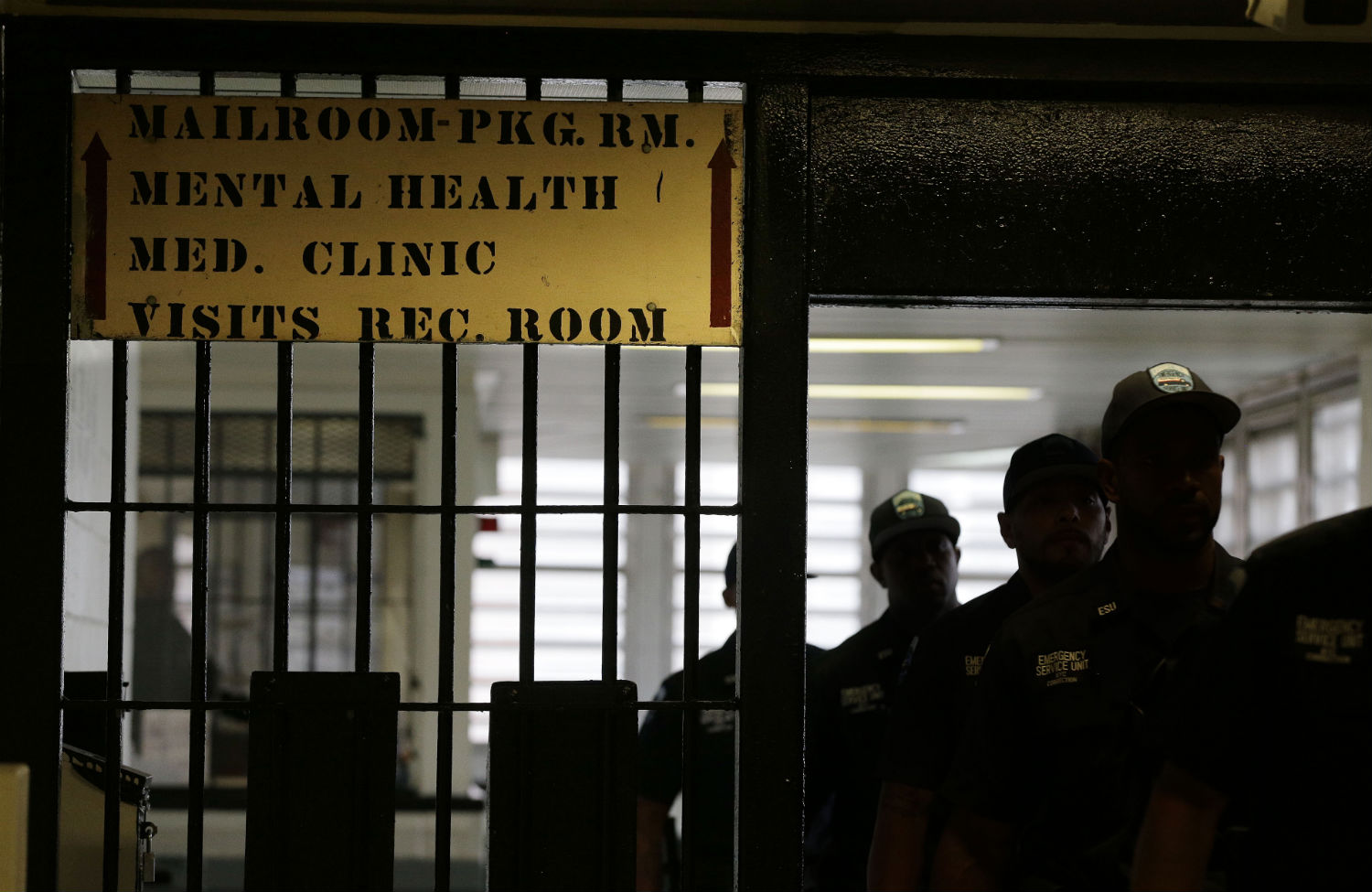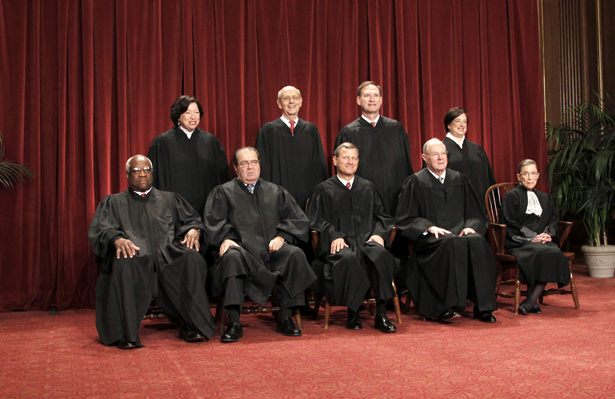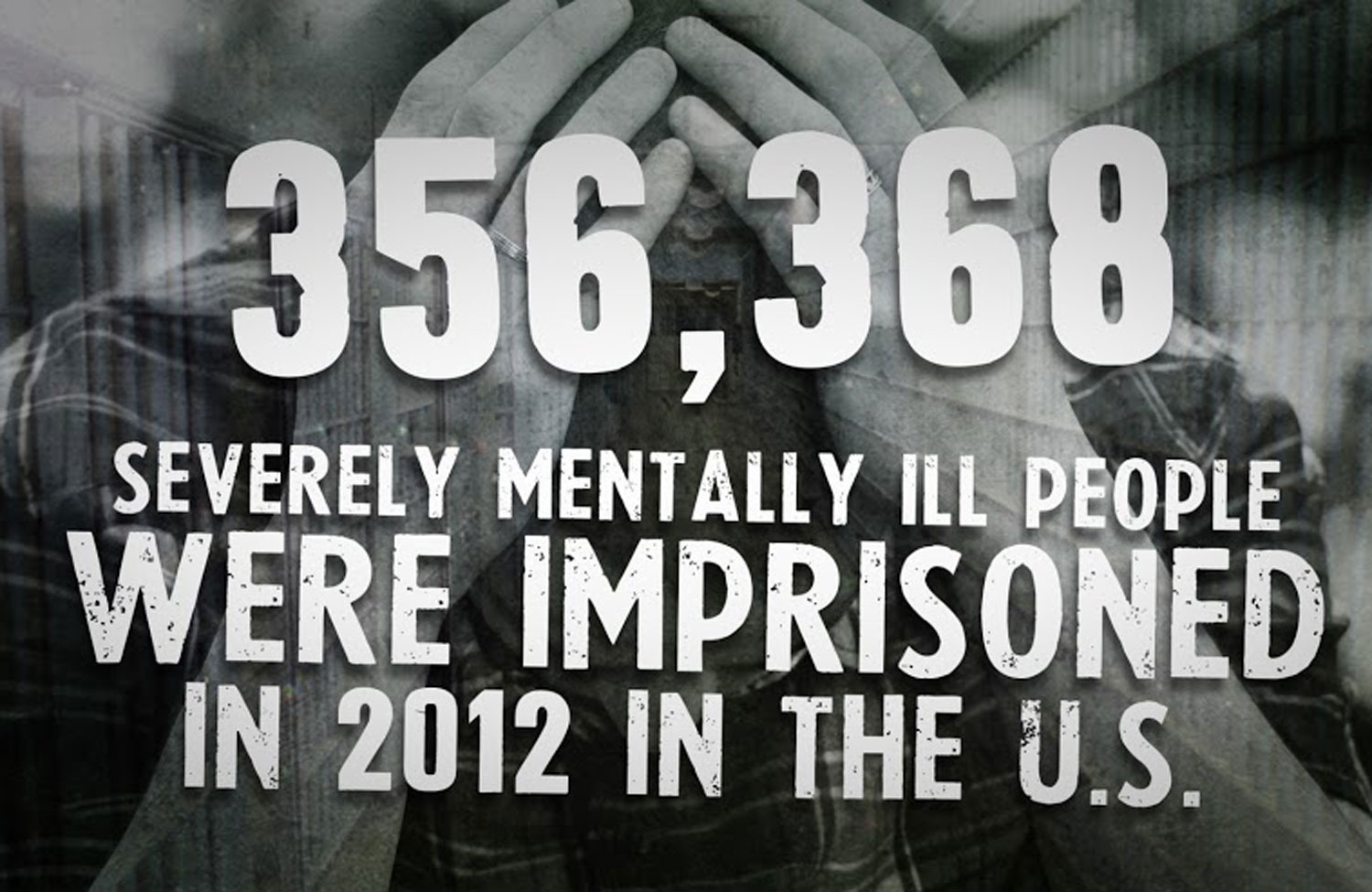
Mental Illness, Homelessness, Drug Addiction: Do These Sound Like Crimes? Mental Illness, Homelessness, Drug Addiction: Do These Sound Like Crimes?
Why are we letting these serious social problems be handled by the criminal justice system?
Oct 9, 2014 / Cities Rising / Mychal Denzel Smith

A Mental Health Crisis Shouldn’t End in a Jail Cell A Mental Health Crisis Shouldn’t End in a Jail Cell
Nearly $9 billion per year is spent locking up people struggling with mental illness.
Oct 9, 2014 / Kara Dansky

The Supreme Court Approves the Country’s Worst Voting Restrictions in North Carolina The Supreme Court Approves the Country’s Worst Voting Restrictions in North Carolina
The country’s worst voter suppression law is now in effect for the midterms.
Oct 9, 2014 / Blog / Ari Berman

Why Are We Using Prisons to Treat the Mentally Ill? Why Are We Using Prisons to Treat the Mentally Ill?
As part of OverCriminalized, our video series produced in partnership with the ACLU and Brave New Films, we're calling on Congress to put the focus of mental health reform wher...
Oct 8, 2014 / Take Action / NationAction

The Government War Against Reporter James Risen The Government War Against Reporter James Risen
The vendetta against him and whistleblower Jeffrey Sterling reflects an antidemocratic goal: the uninformed consent of the governed.
Oct 8, 2014 / Feature / Norman Solomon and Marcy Wheeler

How the World Let the Ebola Epidemic Spiral Out of Control How the World Let the Ebola Epidemic Spiral Out of Control
A swift international response could have contained the outbreak.
Oct 8, 2014 / Editorial / The Editors

Why Is ‘Yes Means Yes’ So Misunderstood? Why Is ‘Yes Means Yes’ So Misunderstood?
California’s affirmative consent law isn’t actually all that radical.
Oct 8, 2014 / Column / Katha Pollitt

Policing Pain Policing Pain
It’s been estimated that half of the people shot and killed by police officers in the United States have some type of mental-health problem. James Boyd was killed in Albuquerque, New Mexico, after a five-hour negotiation with police, who were trying to get the homeless man to leave his illegal campsite. Boyd had only two small camping knives, but he was shot in the back after the officers set off a stun grenade. When they aren’t killing people with mental-health issues, the police are arresting them, a harrowing and harmful experience in its own right. “Jails are the number one mental-health facilities across the country,” San Antonio Police Officer Joe Smarro explains in a new video series about overcriminalization, which launches at TheNation.com on October 9. Produced by Brave New Films in partnership with the ACLU, the series explores alternatives to the criminalization of social problems like mental illness, homelessness and addiction. Please support our journalism. Get a digital subscription for just $9.50! There’s a long history in America of imprisoning vulnerable populations. The criminalizing of homelessness harks back to the days after Reconstruction, when outdated vagrancy laws were suddenly applied to the newly freed black population. The “black codes” targeted formerly enslaved people, who were arrested for violations such as lacking proof of employment. They were then sent to prisons that had sprung up on former plantations, effectively re-enslaving them. This legacy carries on through stop-and-frisk policies and discriminatory immigration enforcement measures. Such policies criminalize everyday behavior, are enforced in a racist fashion, and designate police officers as the first and only solution to society’s problems. That’s why this series is not just about describing the problem, but about how you can take action. These videos focus on innovative and cost-effective solutions that actually improve people’s lives, making us less dependent on prisons and policing to address problems that are far too complex to be beaten into submission. Read Next: Steven Hsieh on the mentally ill veteran who “baked to death” at Rikers
Oct 8, 2014 / Editorial / Mychal Denzel Smith

What’s Wrong With Comparing ISIS to a Disease What’s Wrong With Comparing ISIS to a Disease
While the Obama administration used cancer metaphors to sell a war, it ignored the spread of a real disease.
Oct 8, 2014 / Against the Current / Richard Kim

This Is What Happens When Republicans Try to Destroy Public Education This Is What Happens When Republicans Try to Destroy Public Education
Outrage over deep budget cutbacks in key states is hurting the GOP.
Oct 8, 2014 / Blog / Zoë Carpenter
